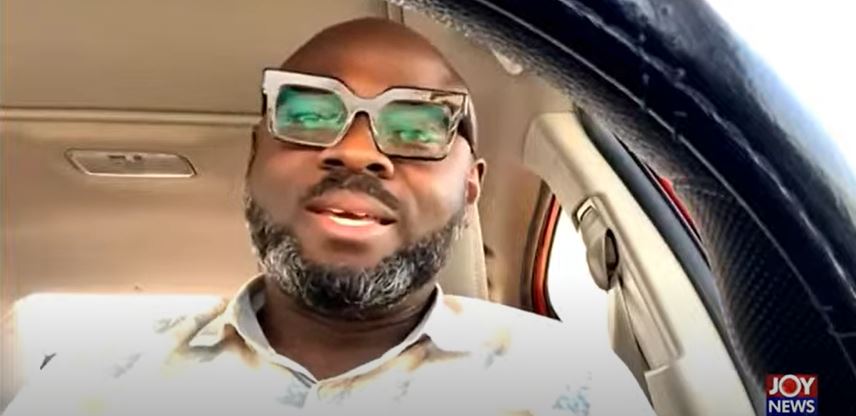A Finance Lecturer at the University of Ghana Business School (UGBS), Prof. Lord Mensah, says government’s inability to implement revenue-enhanced policies and prioritise expenditure is what has raised the country’s debt burden.
According to him, the government’s efforts to introduce new policies to raise revenue and public finances have not yielded the required outcomes as it is struggling to apply initiatives like the e-levy and the benchmark value policy.
Speaking on the AM Show on Monday, January 17, Prof. Lord Mensah said he is not surprised the international ratings agency, Fitch, downgraded Ghana’s Long-Term Foreign-Currency Issuer Default Rating (IDR) from ‘B’ to ‘B-’ with a negative outlook.
“I am not surprised at all. If you take the last budget that we read, it looks like all the revenue-enhanced policies that the government tends to roll out are falling on rocks because if you take the e-levy, the plan was that it had to kick off in January 2022 but look at where are now; and also if you take the benchmark value reduction, it also has a problem.”
“Clearly, it tells you that government is struggling when it comes to the ability to implement its revenue-enhanced policies. So if you are to create an economy of this nature, you’re going to downgrade it because if you’d be able to pay your debts, it has to do with your ability to raise money,” he said.
Prof. Mensah further highlighted that Ghana has consistently been known for borrowing to defray existing debts, a development he believes affects the economy's growth.
“If you look at our presence on the Eurobond market since 2007, and beyond 2007, every time we go to the market, you look at the prospectus and come to understand that we borrow to defray already existing debts for which small amount comes into the economy to grow the economy.”
“But then you ask yourself; why did we find ourselves in that situation? As we were going to the Eurobond market, we were fresh on the market; so, borrowing very long term was difficult. You realise that we borrowed, but the money went into projects which couldn’t pay itself within the seven years, so we had to go and borrow to come and defray existing debts,” he lamented.
Fitch pointed out in its ratings that Ghana’s effective loss of market access to international bond markets increases risks to its ability to meet medium-term financing needs.
The downgrade of Ghana’s IDRs and Negative Outlook reflect the sovereign’s loss of access to international capital markets in the second half of 2021, following a pandemic-related [COVID-19] surge in government debt.
“In our view, Ghana has sufficient liquidity and other available external financing options to cover near-term debt servicing without Eurobond issuance.”
“However, there is a risk that non-resident investors in the local bond market could sell their holdings, particularly if confidence in the government’s fiscal consolidation strategy further weakens, placing downward pressure on its reserves,” Fitch said.
But Prof. Mensah said, “we shouldn’t relate even our [Ghana’s] debts to GDP; we should relate it to our revenue generation.”
“It’s unfortunate a country like Ghana will be relying on taxes and levies to build its economy. I am not against it, but in end, the people within the economy must be well engaged before you start introducing such taxes.”
Latest Stories
-
Zambian FA president charged with money laundering
4 mins -
Mysstel releases video for ‘Paradise’
8 mins -
We are yet to receive an apology from Ashanti Regional Minister – ECG
10 mins -
UEFA International Tournament: Ernest Ofori scores for Black Starlets in defeat to Russia
17 mins -
Cocoa price surge linked to production decline -COCOBOD CEO
22 mins -
Atarah Praise returns on May 19 at Adenta Barrier
23 mins -
World Robotics Championship: 18 pre-tertiary students poised to win medals for Ghana at global competition
27 mins -
Drowned widow was scammed out of $1.5m on dating app hoax, left note about secret ‘double life’
50 mins -
ECG workers threaten to disconnect power from Ashanti Regional Minister’s home
55 mins -
Brain tumour shatters 20-year-old’s dream of becoming a doctor
1 hour -
ICDP Ghana introduces portable ultrasound machines in rural communities
1 hour -
Seven killed in sleep after Ethiopia building collapses
1 hour -
Fitch affirms ETI at B-; Outlook stable
2 hours -
Pictures: Bawumia meets Pope Francis
3 hours -
Former Bibiani GoldStars midfielder Frank Adjei Jr continues fine form in Swedish League
3 hours

